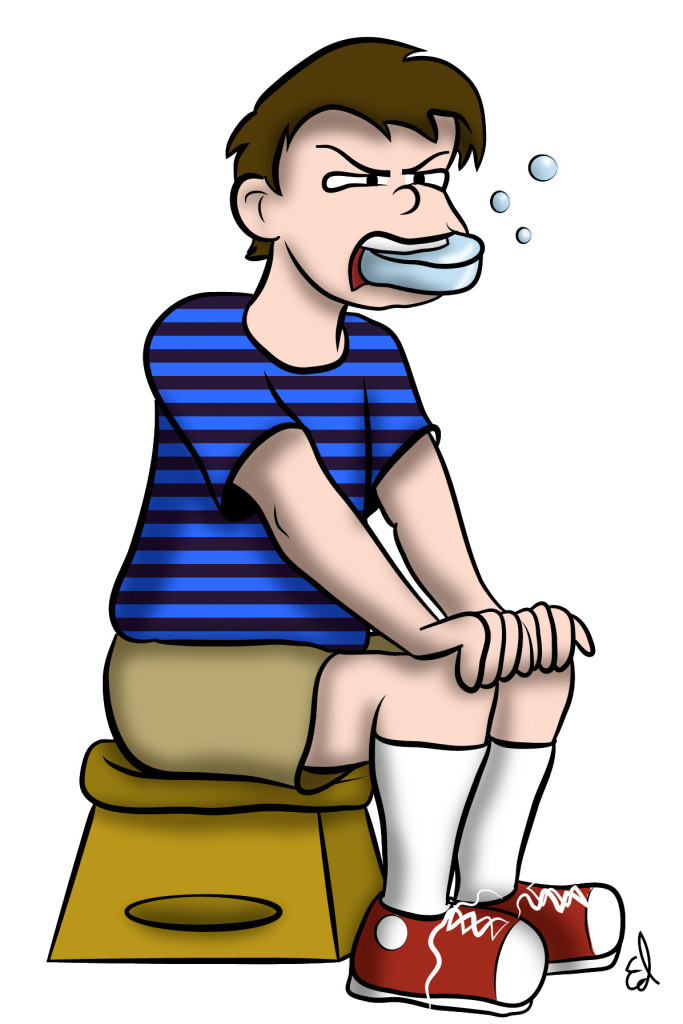Fudge it, just let children swear already
By Elliot Chan, Opinions Editor
Profanity is a rite of passage. No matter how innocently we begin, at one point or another we all end up saying those socially frowned upon words. Sure, I believe in a more sophisticated form of language—the kind I dress up in for my grandma or bring into a job interview—but those words lack substance. They feel fake, forced, and pretentious. Like educated grunts from the time of cavemen, swearing brings human interaction back to the ground level. When used properly, it can express honest emotions without any blurred lines. The pent-up rage we feel can often lead to physical violence, if not for the ability to curse. The freedom to swear allows us to be verbally confident—and that shouldn’t be limited to adults.
In 2010, a Sociolinguistics Symposium study showed that children are swearing earlier than ever, escalating at around ages three to four. The fingers were quick to point at television, music, and vulgar parents, but perhaps the problem isn’t the parents or the children; perhaps the problem is culture. Children are intelligent and they are quick to understand irrational rules, such as the “Do as I say, not as I do” rule. Swearing doesn’t hurt anybody after all, and once they realize it they’ll abuse it, especially out of parental earshot.
We often associate swearing with anger and hostility, but most of the time we swear when we are excited. “This food is goddamn delicious,” or “This is the best fucking song ever.” Perhaps we could do without the “goddamn” and the “fuck,” but then it would be a completely different reaction. Inhibiting the ability to express emotion is more crippling than a few innocuous words.
Once censorship is removed, swearing becomes the norm and not an urge to be defiant. Without risk, there is no adrenaline, and children will begin to use swear words selectively the way intelligent adults do. For parents, omitting the taboo will also cancel out the hypocrisy of telling a child not to swear. Communicating with children like they’re adults is not a hindering act; it’s one of respect, showing that the child is just as smart or has the capacity to be as smart as we are.
In an article published by the Association of Psychological Science, a study showed that swearing takes up an insignificant 0.3 per cent to 0.7 per cent of our daily speech. Profanity is universal and can be found in virtually every language. Although North American culture still uses it to separate high-class from the low-class, there is no proof that people with greater wealth are swearing any less than those in poverty.
Of course we can give our children those swearing training wheels—words like “fudge,” “darn,” and “shoot”—but no matter how you sugarcoat their potty talk, you are not saving them from the inevitable. I’m sorry to say it, Mom and Dad, but your sweet, innocent child is going to cuss and they’ll use those words to talk back to you one day, the same way I did with my parents. The earlier we let our children swear, the less of a problem it becomes. After all, there really is only one bad word, and that’s “hate.”


